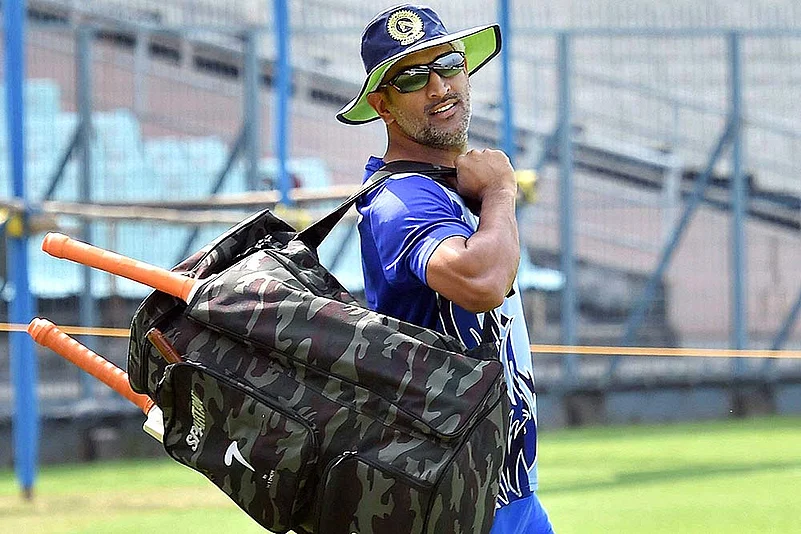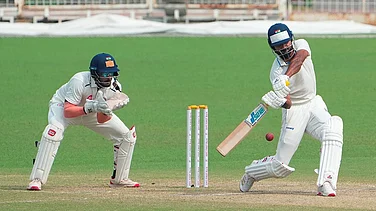In India, it often takes just one poor outing in an international match for a cricketer to be ruthlessly mauled by the so-called experts and fans; now they’re mercilessly trolled on social media. Often, former players-turned-commentators make controversial remarks, sparking fierce bipartisan debate. And if the targeted player—whose single failure is dissected in cold blood—happens to be over 30, or 35-plus, as is the case with the currently ‘under-siege’ Mahendra Singh Dhoni, then it’s a free for all.
At the moment, Dhoni, who has been a dominant force in Indian cricket for 13 years, is being targeted for ‘failing’ to take India to victory in the second T20 against New Zealand in Rajkot. Dhoni batted at No. 6 and joined the chase with India struggling at 67 for four, requiring 130 runs in 11 overs. He scored 49 off 37 balls (2x4s, 3x6s) at a strike rate of 132.43 and was involved in a 56-run partnership with captain Virat Kohli for the fifth wicket. Eventually, India lost by 40 runs—they later won the series 2-1—and the blame was dumped on Dhoni’s shoulders.
It all started when the usually mild-mannered V.V.S. Laxman raised Dhoni’s diminishing utility in T20 cricket, a format in which he captained India to the World Cup title in 2007. “I still feel it’s time for M.S. Dhoni to give youngsters a chance in T20s,” said Laxman after the Rajkot game. And, lo and behold, former India pacer Ajit Agarkar (who is in a potentially conflict of interest zone as he works for the media while being chairman of senior Mumbai selection committee), Virender Sehwag, Aakash Chopra and Sourav Ganguly joined the chorus. Agarkar, who was in the Dhoni-led 2007 World T20-winning team but played only three of India’s seven matches, had questioned Dhoni earlier as well.
“I think India must now look at other options, at least in T20s,” Agarkar chipped in. But Kohli, who interpreted the criticism as more of 36-year-old Dhoni’s age than his scoring ability, team coach Ravi Shastri, Sunil Gavaskar, Kapil Dev and Mohammed Azharuddin came out strongly in Dhoni’s defence. Kohli was vociferous in his comment: “First, I don’t understand why people are only pointing him out...If I fail three times, no one is going to point fingers at me because I’m not over 35,” he said after India won the T20 series against New Zealand in Thiruvananthapuram.
Dhoni himself seems to have taken all this very sportingly. “Everybody has views in life and it should be respected,” he said. “I always feel you have to believe in your abilities and out of the 10 games, if you are winning six or seven that way, then it is the right thing to do.” Sandeep Patil, who as chairman of selectors shared a good rapport with captain Dhoni, tells Outlook, “MS has done such a fabulous job over the years. But one bad performance and people are ready to pull him down.... You can’t stop people from talking, commenting, suggesting; it’s the player who has to decide. The captain and the team manager has to decide what is good for the team and players.” He emphasised that during his chairmanship, between 2012 and 2016, his panel always selected players on fitness and form; age was never a handicap.
Though it’s incontrovertible that Dhoni’s legendary ‘finishing’ qualities have attenuated, and the trademark, fierce slaps and swipes don’t reach the boundary with the same unerring ease, it will be unlike Dhoni to continue beyond his sell-by date—like Sachin Tendulkar did towards the end, to the embarrassment of many fans. Dhoni surprised everyone by retiring from Test cricket in 2014, but continues to play in the 50-over and 20-over formats. He has also expressed a desire to play in the 50-over World Cup in 2019. Although the selectors recently picked Rishabh Pant in the Indian T20 squad, indicating that the Delhi youngster is in the radar, no challenger is really pushing Dhoni hard currently. And crucially, much to his advantage, Dhoni has the strong backing of Kohli and Shastri. “People should look back at their careers before commenting on Dhoni. There is no one better than Dhoni on the field, given his ability behind the wicket, with the bat and his presence of mind and sharpness on the field,” Shastri said before the India-Sri Lanka Test that started in Calcutta on November 16. Harbhajan Singh feels the same. “Dhoni has been a champion player and he has his opinion and we should respect that. He can play for five years if he remains fit.... Age should not be talked about; it should be performance and fitness,” Harbhajan tells Outlook.
Many stalwarts currently playing are well into their late 30s, while some retired after crossing 40. Former Aussie player Bradd Hogg, who turns 47 in February, takes the cake: he is currently playing BigBash T20 and wants to play till 50. Shahid Afridi, in his 38th year, is playing in Bangladesh Premier League T20; Pakistan’s Misbah-ul-Haq played Tests till 43; Younis Khan till 39. “The criteria have to be form and fitness and nothing else, and that has always been the case. At times, opinion gets swayed due to age of a player, but it should never be the criterion,” says former India wicket-keeper Saba Karim. “Over the years, Indian selectors have had an excellent eye for spotting and nurturing young talent. But when it comes to taking major decisions, it’s possible that they all get emotional. Whatever is being written or discussed about Dhoni today is unfair. His time to say goodbye will come, but it is still early,” feels former India ODI player V.B. Chandrasekhar, who was part of the selection panel that gave Dhoni his international break in 2004.
In fact, Dhoni’s career is shorter than some of his illustrious predecessors, also age-wise. The longest serving Indian Test player, Tendulkar, ended his 24-year career at 40. Other Indians like Lala Amarnath (19 years), S. Venkataraghavan (18 years, 214 days) and Anil Kumble (18 years, 85 days) had long Test careers. The honour of having the longest ever career goes to an England legend—Wilfred Rhodes was 52 years-165 days old when he ended his 30-year-315-day Test career in April 1930. Dhoni’s Test career lasted nine years and 90 matches. Also, is it the selector’s job to tell a player to retire? “Dhoni is the right person to take a call on his future. The selectors don’t have that right,” avers Patil.
But in a cricketing country of over a billion souls, every detail will make headlines, and every fan will play at analyst. As Karim puts it, “We live in a democratic country and we should be allowed to debate and argue.... Everybody has the interest of the side and the country in mind. If you have divergent views, it’s perfectly fine.” Through all this, Dhoni maintained his customary sang froid. The powers that be at the BCCI are backing him right now. The interesting point, however, would be to see how many more matches he can add to 309 ODIs and 83 T20 Internationals. And how long Kohli and Shastri would continue to keep faith in the old warhorse.
***
Champs On The Follow-On

Sunil Gavaskar
Test career: 16 years
Age at retirement: 37
One of the best openers the world has seen, he stood fearlessly against the fastest of bowlers and scored heavily. Against the West Indies’s battery of fast bowlers in 1970s and ’80s, he scored 13 Test tons. Although his final innings was a
magnificent 96, some feel he should have retired when his reflexes had slowed down.
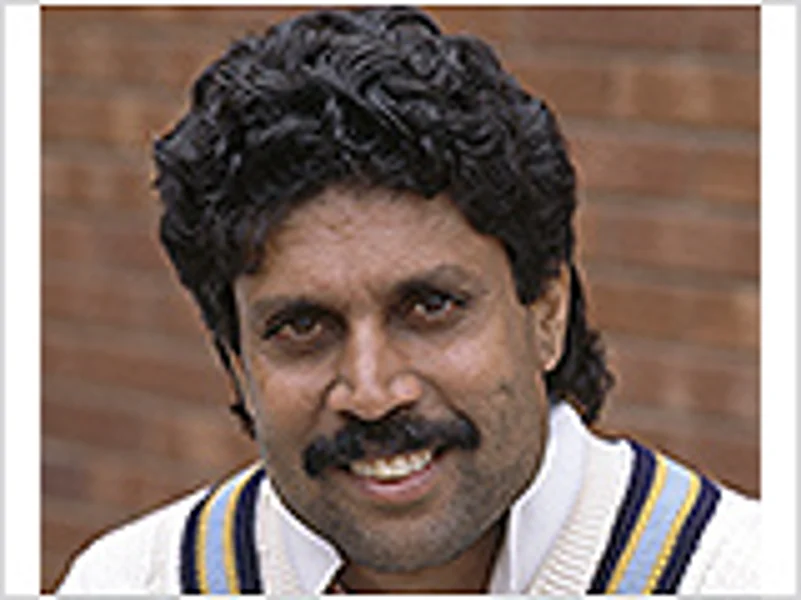
Kapil Dev
Test career: 15 years
Age at retirement: 34
India’s greatest all-rounder ever. He always played positive cricket, eyeing a win every time he stepped on to the field. Like Imran Khan in Pakistan, he set a shining example for Indians who wanted to bowl fast. But towards the end of his illustrious career there were demands for him to retire. He quit in 1994.

Viv Richards
Test career: 16 years
Age at retirement: 39
The biggest demoraliser of bowlers around the world in his time, Richards destroyed the best of bowling attacks in his heyday. But his last two years in international cricket—from 1989 to 1991, when he eventually retired—were not as dominant as he looked a pale shadow of the dominating batsman he was.
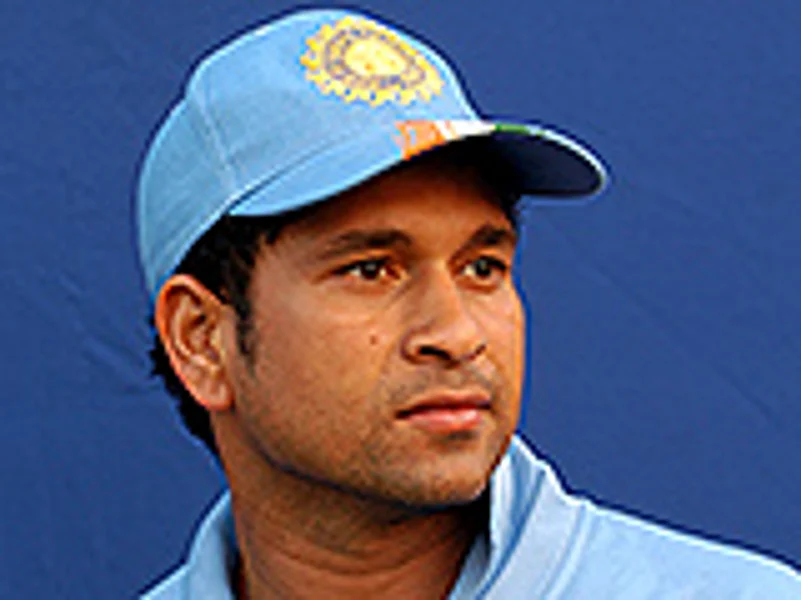
Sachin Tendulkar
Test career: 24 years
Age at retirement: 40
That he kept himself motivated for so long is a tribute to his single-minded devotion to cricket. However, some of his critics felt that he should have left the scene after scoring his 100th international century in 2012. He played 11 Tests after that to become the first and so far the only man to play 200 Tests.
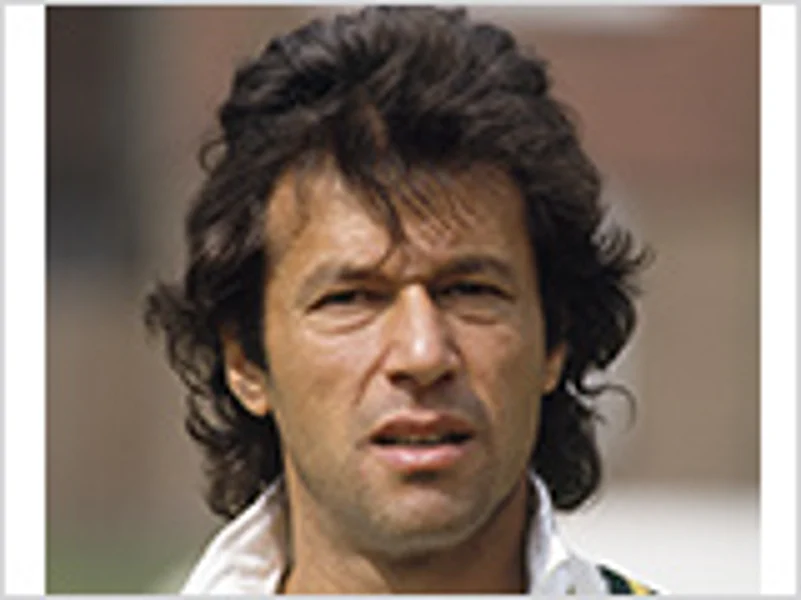
Imran Khan
Test career: 20 years
Age at retirement: 39
He gave an entirely new dimension to Pakistan cricket, particularly fast bowling and captaincy. Like all speedsters, injuries plagued his career, too. He even played as a pure batsman for a while when his shin didn’t allow him to bowl. He retired, but came out of it on a specific request of General Zia-ul-Haq.






